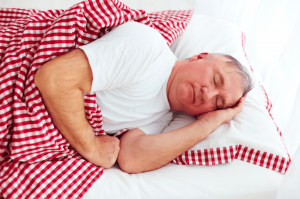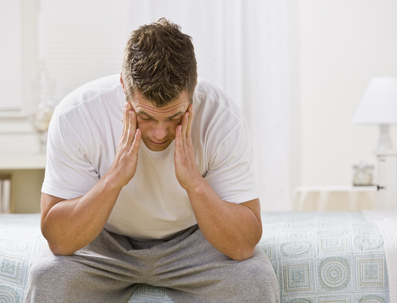Sleeping After 60 – What You Need to Know
Sleeping After 60: Getting Rest Is Different Than Earlier in Life, and Working at It Is Key
There is a wonder-working, health-promoting elixir of youth available for free—sleep. Yeah we know sleeping after 60 is hard.
It is also true that getting rest at night is one of the things that change as we age, and not necessarily for the better. Consequently, it helps to be in control of it. Your health depends on understanding the root causes why you sleep differently. The good news is that you can adapt healthy habits at any age. Yes sleeping after 60 is possible!
If you suffer from sleep deprivation, you are not alone. Insomnia troubles nearly half of all adults in the U.S. over the age of 60. Often, a comforting piece of advice offered to exhausted seniors is that they can get by on less sleep. Do not believe it. It is a myth that, unfortunately, even some doctors promote. In reality, elderly persons need 7 to 9 hours of sleep.
Unfortunately, getting the much-needed rest is not as easy as we get older. As we age, the likelihood of restless leg syndrome, sleep apnea, and snoring increases. One reason for sleep troubles are the injuries and advancing illnesses—big and small—that we accumulate over time and that keep us up at night. Arthritis and back pain, for example, are common sleep thieves. So is the weight gain that tends to creep up with age. They are often the cause of secondary insomnia, one that arises from other causes. In those cases, working with your doctor to treat the underlying causes of sleep disturbance is the solution.
“Insomnia is more common for seniors, partly because of health issues, partly because of the anxiety and the concerns of aging, and sometimes because of medication,” according to Jack Gardner, a sleep medicine neurologist at Baylor Medical Center in Waxahachie, Texas.
How to gain better control of your rest and health sleeping after 60? You can always get sleeping pills from the doctor—about 20 percent of elder adults do—but they come with well-known risks for dependence risks and drug interactions. Instead, or in addition to sleeping pills, consider incorporating a healthy sleep hygiene:
- Aim to finish watching TV or using the computer an hour or two before bedtime.
- Try to go to bed at the same time each day.
- Do not drink an hour before bed and try to empty your bladder before falling asleep.
- Do not reach for alcohol as a sleeping aid (it actually makes the quality of your sleep worse in the long run).
- Sleep in a dark, quiet, and cool room. If you sleep with a partner and she or he snores, look into sleeping with earplugs or other options to prevent your own sleep loss as a result.
- Sleep on a comfortable mattress. If you suffer from back pain, be mindful of proper alignment and pressure points as you pick a mattress.
- Try incorporating a routine of mindfulness meditation.
- Exercise during the day.
- Ask your doctor about natural supplements such as melatonin and valerian root.
Agnes Green is a researcher for the sleep science hub Tuck Sleep Foundation. She holds two masters degrees in the social sciences from the University of Chicago and Northwestern University. She sleeps most soundly after a kettlebell workout in Portland, Oregon.
Our Friday Song of the Week – Mustang Sally
Our Friday Song of the Week – Mustang Sally
Shoulder Pain Linked to Risk for Heart Disease – Video
Should Pain and Heart Disease
A new study led by investigators at the University of Utah School of Medicine finds that individuals with symptoms that put them at increased risk for heart disease could be more likely to have shoulder problems, including joint pain and rotator cuff injury.
“If someone has rotator cuff problems, it could be a sign that there is something else going on. They may need to manage risk factors for heart disease,” says the study’s lead author Kurt Hegmann, M.D., M.P.H., Professor of Family and Preventive Medicine and Director of the Rocky Mountain Center for Occupational and Environmental Health. The research was published in the Journal of Occupational and Environmental Medicine.
Who’s Your Security Blanket – Smilecast 8
Security Blanket
In this episode I discuss the need to have a security blanket of help on your caregiving duty, something to look to for comfort and hope. A survivor of the Miracle on the Hudson had the Red Cross. What is yours? My inspiration was my sister Diane. We all need help on our caregiver journey. Reach out to friends. Use technology to stay connected. Meditate. We each can create our security blanket. Keep in touch and let me know how your journey is going,
Podcast: Play in new window | Download
Subscribe: Apple Podcasts | RSS
5 Reasons Why You Should Understand Caregiver Stress
5 Reasons Why You Should Understand Caregiver Stress
Caregiver stress – a topic often left unspoken, particularly with the emotions involved. Most especially for family caregivers, with guilt and confusion settling in when the line of duty and personal time seems to blur.
As such, identifying several reasons on why and what caregiver stress is will help create an awareness that’ll not only lighten the burden that caregivers have, but give a clearer understanding for recipients on how they can contribute to better family caregiving support as well.
Because of Emotional and Health Issues
Two in five family caregivers have been reported to experience emotional stress, while one in five experiences physical strain when caring for a loved one. The emotional, mental, and physical risk takes its toll when one considers a caregiver’s age and condition: women, in general, take up caregiving tasks in a family, while 25% of Millennials today looks after a relative today.
Because there is a Loss of Work Opportunities
Placing the mentioned gender and age factors above into perspective, one can see that most family caregivers are prone to losing employment opportunities. Women, even with their increased participation in the workforce, may still need to consider gender pay gaps. Millennials may be at risk of looking or retaining a career, juggling caregiving duties and work at the same time.
Because of “Guilt”
Because of multiple commitments, family caregivers may at times feel guilty of not being able to meet the demands of custodial care, simply because they need to have some time for themselves. Take, for example, spousal caregivers. The need to be there for your partner is expected, that leaving him or her alone for a break may seem unacceptable.
Because Family Caregivers May Not Be Prepared
As essential caregiving may be, it has – unfortunately – revealed that majority of family caregivers have little to no training at all to prepare for the tasks at hand. The challenge is magnified for dementia patients, with most family caregivers not able to meet medication or custodial standards.
Because We Need to Change for the Better
Family caregivers need to be recognized as a cause of concern, considering that the demand for custodial care is expected to increase the following years. Start that conversation today – we need to recognize caregiver stress is real, for us all to prepare and address it properly.
Caregiver Stress Author Bio:
Leandro Mueller
As the Online Content Director of FreeMedSuppQuotes, Leandro Mueller aims to push for awareness and promotion of the many benefits of Medigap insurance plans in the market. Additionally, he is interested and keen in marketing and advertising strategies. He hopes that his work will help boomers and retirement industry experts alike in their lives.











